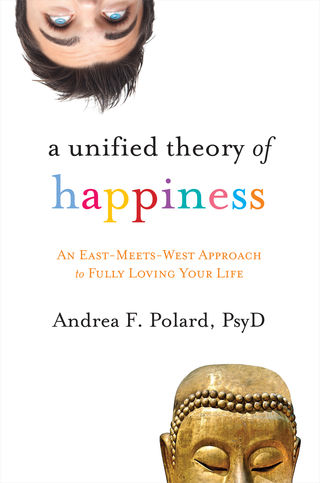Happiness
Seven Agreeable Ways to Be Disagreeable
How defiance and happiness can go together
Posted June 30, 2017
People need people for their survival and their happiness. This much is known to almost all of us intuitively and lately also to scientists who have researched the subject. Loneliness is a killer. Defiance and happiness, on the other hand, are not words that make automatic sense together. According to the Webster dictionary, to defy means “to challenge to combat,” “to confront with assured power of resistance” and “to resist attempts at,” but also -- and this is where it gets interesting for those who are curious about happiness -- “to challenge to do something considered impossible.” To be able to challenge the status quo can be of the utmost importance to those who have suffered trauma or neglect as well as to those who find fulfillment and flow experiences in finding creative solutions.
As a girl growing up in the 70ties, I was told in a hundred different ways not to be anything but “good.” More than my actual family of origin, the Zeitgeist was highly uneasy with female power. Meanwhile, while I was supposed to be agreeable, I suffered chronic child abuse, making me think that my chances of happiness in this life were minimal, if not non-existent. Since I can remember, this thought caused unbearable feelings of injustice. Should my life be determined by the bad cards I was dealt? Were there any ways to reach my full potential even when my needs were so apparently not met? Even though I had my doubts, I did not want to accept my fate to live a life of deficits and despair. My feelings of sadness and fear spread like a wildfire, but I defied my own prophecy of doom as much as I suffered from it. I defied what seemed impossible at the time. I defied my own unhappiness. The rest is (my) history: the book I wrote is not only testimony of my happiness, but also of my defiance.
There were a million stumbling blocks on my path, some of which I like to share so that others can remove theirs, if congruency with mine are found. It took me a while to figure out that my disagreeableness was not synonymous with dislike of people with whom I disagreed. It was not necessary to reject people just because they held opinions that I felt compelled to reject. I realized that I truly liked people and could empathize even with those whom I contradicted. Their “lies” and “hypocrisies” turned into “different perspectives” and “our all imperfections.” Loving people as they were while introducing an alternative idea slowly emerged as a possibility. (All too slowly, I am afraid. Sorry people….)
In his book “David and Goliath,” Malcolm Gladwell found that people who suffered disadvantages have an uphill battle when it comes to happiness and success. However, when they do succeed, they often excel precisely because of their disadvantages. We can get stronger when we experience urgent necessity for such strength. I think that my chronic unhappiness then is the prime reason for my chronic happiness now. One of the personality traits that promote this tough or compensation learning is “disagreeableness.” The author stresses that disagreeable people don’t need to be “obnoxious or unpleasant”1. We can respectfully, kindly and lovingly disagree with others’ and -- I add -- with our own opinion. We do not have to buy into preconceived notions, but there is no need to hurt anybody while rejecting them.
When I think of defiance, I hear the song “I will survive” by Gloria Gaynor, which, to this day, touches me.2 In this song, a woman laments that she had been badly hurt by a man. However, she is not trapped in or held victim by her lamentations. After an initial paralyzing shock, she takes a strong stance, posing these rhetorical questions:
“Did you think I'd crumble?
Did you think I'd lay down and die?”
And answers herself:
“Oh, no, not I!
I will survive.
Oh, as long as I know how to love I know I'll stay alive.”
What wonderful defiance! With her willingness to challenge what seems impossible to many victims of abuse, which is to be our best and come from love, she turns her life around. It is this courage and dedication to the light that we need in order to transcend our darkness.
There are practical ways to disagree with others without being disagreeable. You can 1) assure the other of your respect, like or even love, 2) point out the areas with which you agree, 3) tap into your lightheartedness and smile, remembering that life is a giant play that begs to be played well, 4) lead with “I just have to disagree,” “I owe it to myself to suggest,” or “I feel compelled to point out, 5) note, but do not give into possible self-doubts, and finally 6) state your alternative opinion with clarity and assertion. If you know the other side is sensitive, you might want to close with 7) reassure the other once more that you respect, like or love him or her -- which includes yourself.
Let yourself be defiant and allow happiness into your life. It's only just.
SOURCES:
- Malcolm Gladwell (2013). David and Goliath: Underdogs, Misfits, And The Art Of Battling Giants, New York: Back Bay Books, p. 116.
- To hear the song “I will survive” by Gloria Gaynor, please click here: https://www.youtube.com/watch?v=gYkACVDFme
NOTE: If this post in any way “spoke” to you, and you believe in might to others also, please consider sending them its link. Moreover, if you you’d like to read other articles I’ve written for Psychology Today, click here.
© 2017 Andrea F. Polard, PsyD. All Rights Reserved.
----I invite readers to join me on Facebook and to follow my miscellaneous psychological and philosophical musings on Twitter.
www.AUnifiedTheoryofHappiness.com





